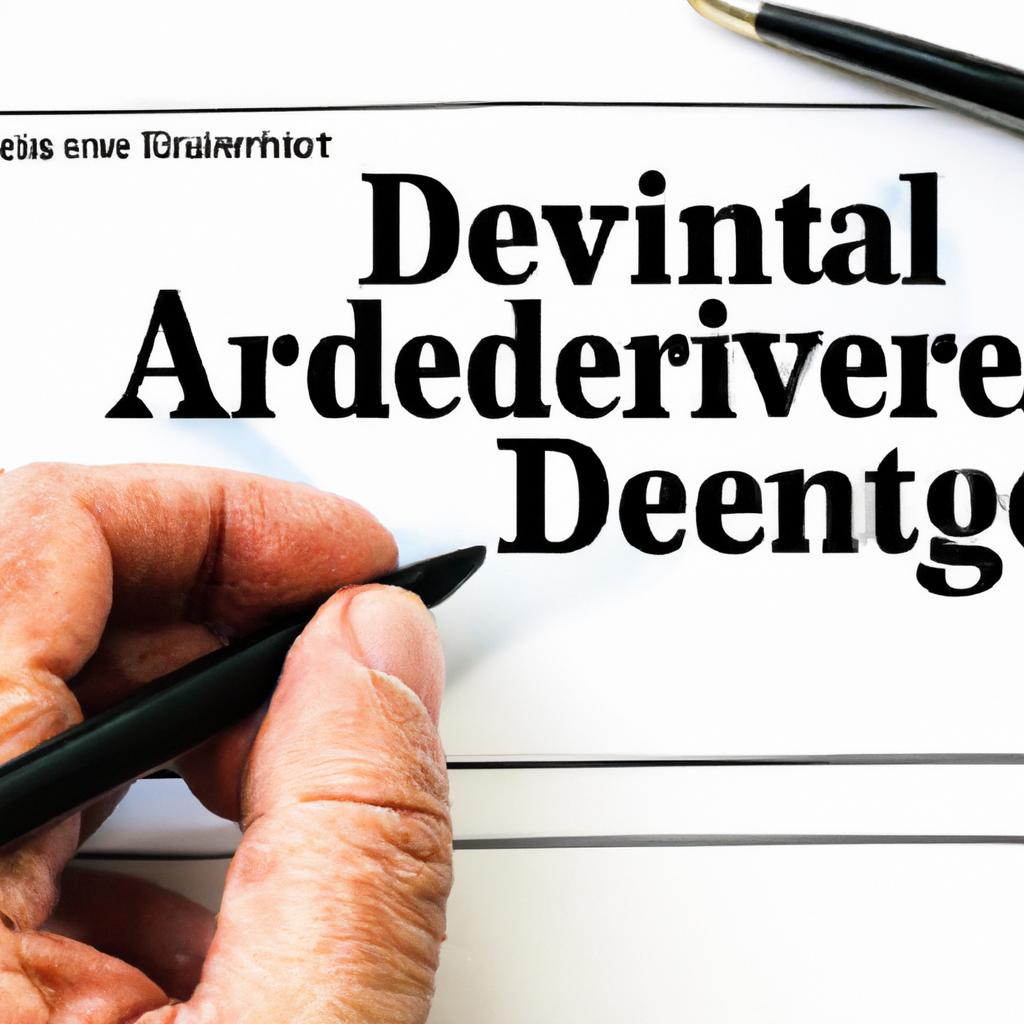In the complex realm of end-of-life decision-making, the question of who signs a Do Not Resuscitate (DNR) order can be a critical one. As experienced legal professionals specializing in estate planning and elder law at Morgan Legal Group in New York City, we understand the importance of navigating these delicate matters with precision and clarity. Join us as we delve into the intricacies of the DNR process and explore the key parties involved in the decision-making process.
– Legal Capacity and Decision-Making Authority in Signing a DNR
When it comes to making the difficult decision of signing a Do Not Resuscitate (DNR) order, it is important to understand who has the legal capacity and decision-making authority to do so. In most cases, the individual themselves will have the authority to sign a DNR if they are of sound mind and able to make their own medical decisions. However, there are certain situations where someone else may have the authority to sign a DNR on behalf of the individual. These situations include:
- Healthcare Proxy: If the individual has appointed a healthcare proxy or healthcare power of attorney, this person may have the authority to sign a DNR on behalf of the individual if they are unable to make their own medical decisions.
- Legal Guardian: If the individual has a court-appointed legal guardian, the guardian may have the authority to sign a DNR on behalf of the individual.
- Next of Kin: In some cases, the next of kin may have the authority to sign a DNR on behalf of the individual if no healthcare proxy or legal guardian has been appointed.

– Considerations for Designating a Health Care Proxy to Sign a DNR
When designating a health care proxy to sign a Do Not Resuscitate order (DNR), it is crucial to consider several important factors to ensure that your wishes are properly communicated and respected. Your health care proxy should be someone you trust implicitly, who understands your wishes regarding end-of-life care, and who is willing and able to advocate on your behalf in difficult situations. In addition, it is essential to discuss your wishes with your designated health care proxy in detail, so they fully understand your preferences and can make informed decisions on your behalf.
Furthermore, it is essential to select a health care proxy who is willing to follow through with your wishes, even if they may personally disagree with them. It is important that your health care proxy is comfortable advocating for you in challenging situations and is prepared to communicate your wishes to medical professionals clearly and assertively. By carefully considering these factors and discussing your preferences openly and honestly with your designated health care proxy, you can ensure that your end-of-life wishes are respected and upheld.

– Role of Advanced Directives in Determining Who Signs a DNR
Advanced directives play a crucial role in determining who has the authority to sign a Do Not Resuscitate (DNR) order on behalf of a patient. These legal documents, which include healthcare proxies and living wills, outline an individual’s wishes regarding medical treatment in the event they become incapacitated. In the absence of advanced directives, decisions about a DNR order may fall to family members, doctors, or even hospital administrators, leading to potential conflicts and confusion.
When a patient has designated a healthcare proxy in their advanced directive, that individual is typically the one authorized to sign a DNR order. The healthcare proxy is chosen by the patient and is responsible for making medical decisions on their behalf if they are unable to do so. It is important for individuals to carefully consider whom they appoint as their healthcare proxy, ensuring that the chosen individual understands their wishes and is capable of advocating for them in a healthcare setting. Having clear and specific instructions in an advanced directive can help prevent disagreements among family members and medical professionals about who has the authority to sign a DNR order.
– Importance of Communicating DNR Preferences with Loved Ones and Healthcare Providers
When it comes to making decisions about end-of-life care, it is crucial to communicate your Do Not Resuscitate (DNR) preferences with your loved ones and healthcare providers. By clearly expressing your wishes in advance, you can ensure that your medical treatment aligns with your values and beliefs, even if you are unable to communicate them yourself. Failure to discuss your DNR preferences can result in confusion and conflict among family members and healthcare professionals, leading to unnecessary stress and potentially unwanted interventions.
It is important to designate a healthcare proxy or power of attorney who can make medical decisions on your behalf if you are unable to do so. This individual should be aware of your DNR preferences and be prepared to advocate for your wishes in the event of a medical emergency. Additionally, it is advisable to document your DNR preferences in a legal document, such as a living will or advanced directive, to ensure that your wishes are followed accurately. Consulting with an experienced estate planning attorney, such as Morgan Legal Group in New York City, can help you navigate the legal complexities of DNR orders and ensure that your end-of-life wishes are honored.
Q&A
Q: Who typically signs a Do Not Resuscitate (DNR) order?
A: A DNR order is usually signed by the patient themselves, with input from their healthcare team, loved ones, and legal guardian if applicable.
Q: Can someone sign a DNR on behalf of a patient?
A: In some cases, a healthcare proxy or legal guardian may sign a DNR order on behalf of a patient who is unable to make decisions for themselves.
Q: Are there specific criteria that determine who can sign a DNR?
A: The decision to sign a DNR is based on a variety of factors, including the patient’s medical condition, prognosis, and their own preferences for end-of-life care.
Q: Does signing a DNR mean that no medical interventions will be provided?
A: Signing a DNR primarily specifies that no CPR or other life-saving measures be performed in the event of cardiac or respiratory arrest. Other medical interventions may still be provided according to the patient’s wishes and medical team’s recommendations.
Q: What steps are typically taken before a DNR order is signed?
A: Before signing a DNR order, patients and their healthcare team will have thorough discussions about the implications and alternatives, ensuring that the decision aligns with the patient’s values and goals of care.
The Conclusion
In conclusion, the decision of who signs a Do Not Resuscitate (DNR) order is a complex and personal one that involves careful consideration of one’s values, beliefs, and medical circumstances. It is essential for individuals to have open and honest discussions with their loved ones, healthcare providers, and legal representatives to ensure that their wishes are clearly communicated and respected. Ultimately, the signing of a DNR is a deeply personal choice that should be made with careful thought and consideration. Thank you for reading and may this article provide you with greater insight into this important healthcare decision.


